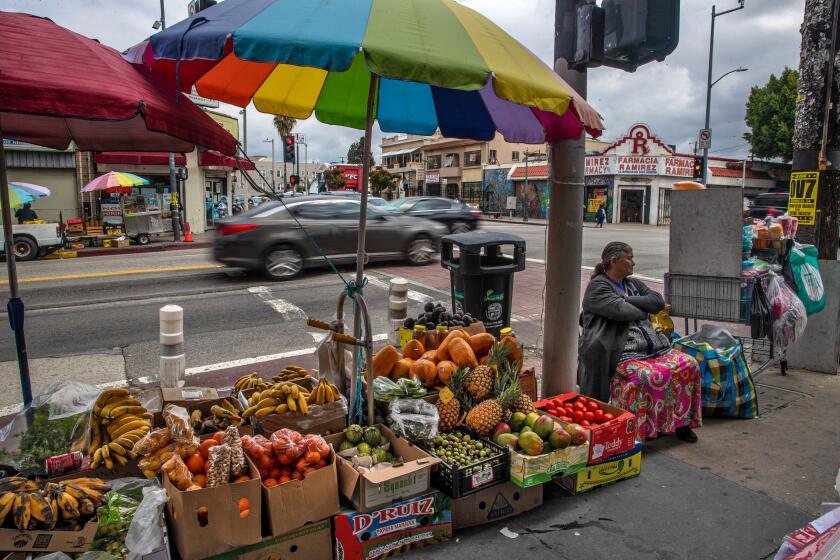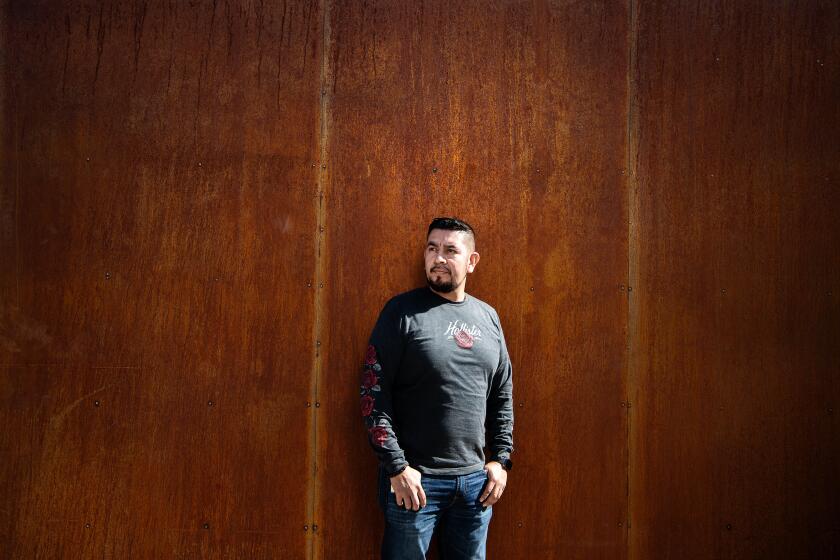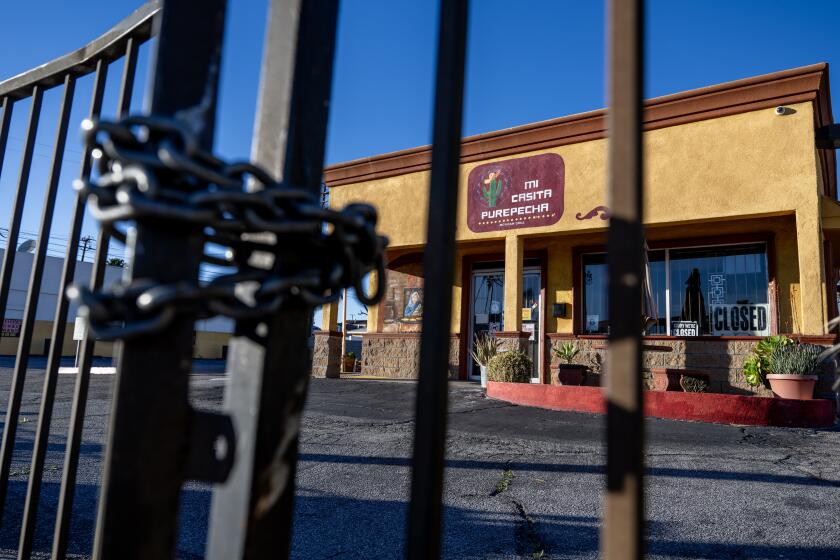A $6.8 million L.A. County program promised free food carts for vendors. It hasn’t delivered
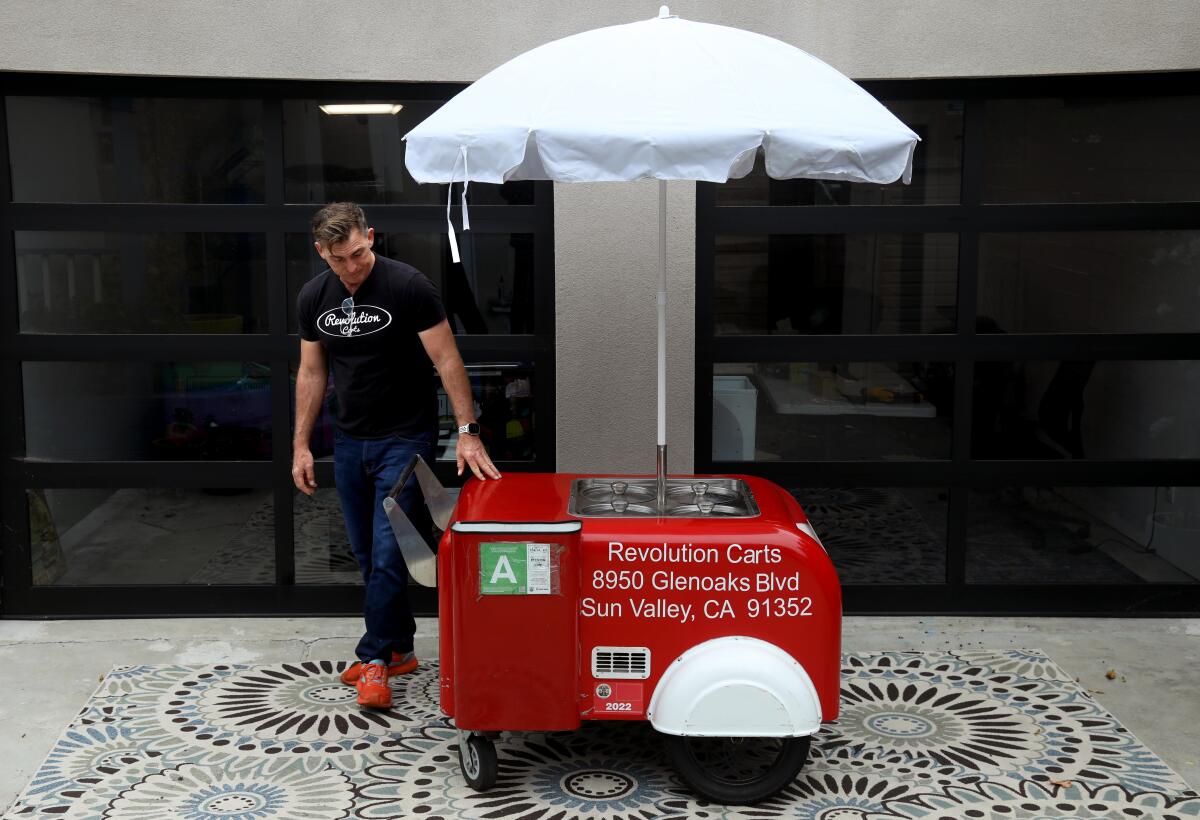
- Share via
In 2021, as the COVID-19 pandemic was upending the mobile food economy, L.A. County officials won approval for an ambitious, multimillion-dollar plan designed to aid beleaguered street vendors across the region.
At first, $5.81 million was allocated for the effort — and last month, an additional $1 million.
Among the initiative’s aims: making it easier for sellers of tamales and other staples of Southland sidewalks to register with and get approved by the county. Its complex licensing and permitting rules have long stymied food vendors, who number in the thousands.
The centerpiece of the $6.81-million project: getting 200 code-compliant food carts fabricated and distributed to vendors — for free.
But, nearly two years after the program was formally launched by the county’s Department of Economic Opportunity, none of the carts have been built.
So far, according to public records, the county has spent more than $700,000 on outreach, education and other efforts. The money — which came from nearly $2 billion in funding it received via the 2021 American Rescue Plan, the pandemic-era stimulus package — must be spent or obligated by contract by Dec. 31.
The Department of Economic Opportunity’s lack of progress during a dire stretch for vendors, many of whom are Latino immigrants, has drawn fierce criticism from a prominent industry executive in private conversations with officials and at public meetings. Matt Geller, chief executive of the National Food Truck Assn., told The Times that “the wrongheadedness of everything they are doing is a result of [having] no experience in the space.”
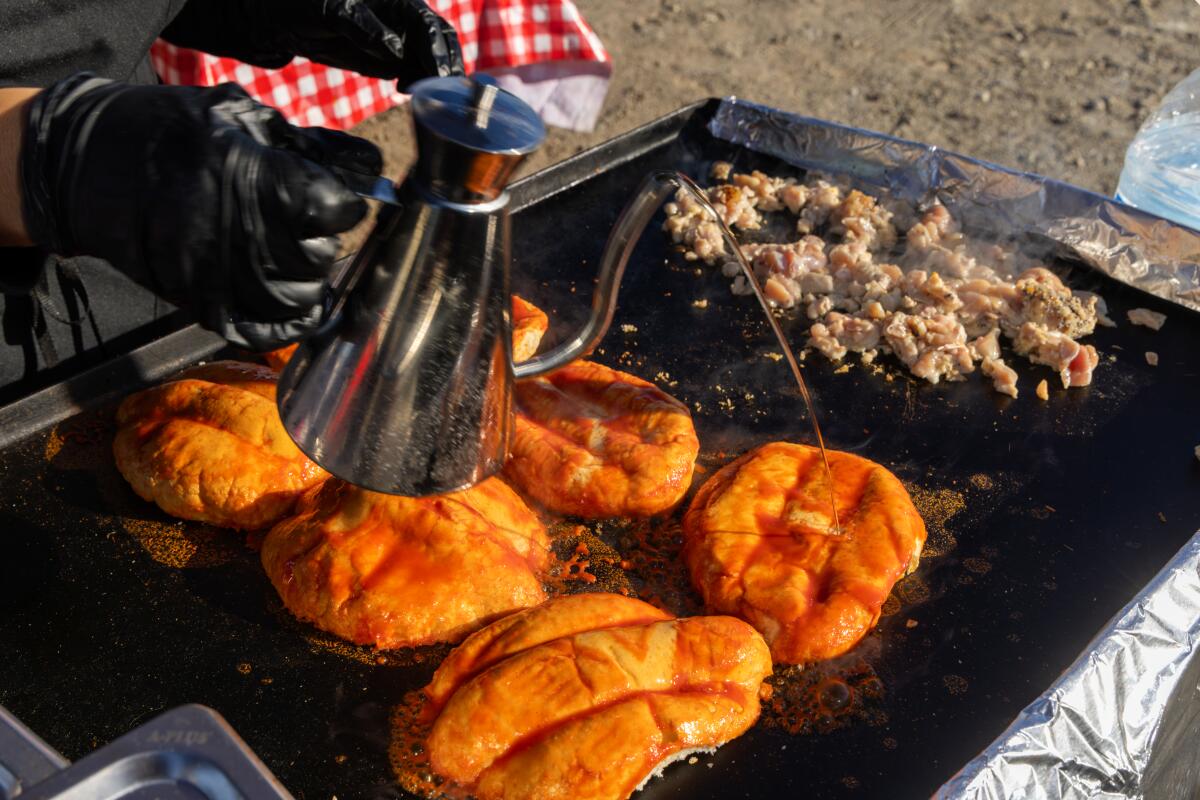
“My enemy is time,” said Geller, 49, who also is co-founder of Revolution Carts, which in 2021 developed the first hot-hold food cart to be approved by the L.A. County Department of Public Health. “Every single day that a vendor can’t vend legally ... that’s my enemy. It keeps me up at night.”
Kelly LoBianco, director of the Department of Economic Opportunity, conceded she’d like the process “to move faster.”
“I know we’re government; we’re doing the best we can,” she said. “I think we’re moving along. We’re definitely running a community-engaged process.”
LoBianco acknowledged Geller’s criticism, but stressed the importance of the ongoing educational outreach, which has included permitting clinics. She also said a 2022 state law that allowed for a new, simplified grill cart — as well as an active dialogue with vendors — has pushed the county to reconsider its plans.
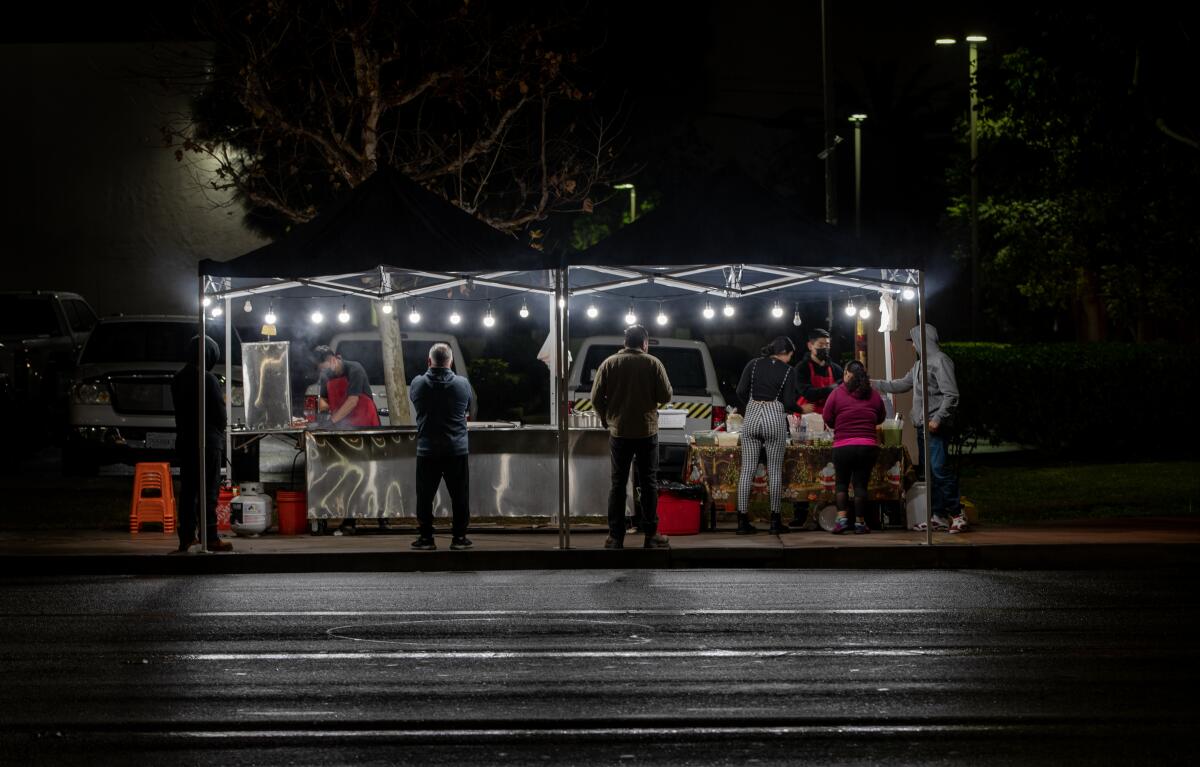
For years, there has been something of a holy grail in the mobile food economy: an easily permitted cart that could be used to cook a wildly popular street food — tacos. Under the old rules, to get permitted, a grill cart was required to have multiple sinks, which would make them exceedingly large and heavy. But the passage of state Senate Bill 972 two years ago created a potentially game-changing new category, the “auxiliary” grill cart. They are not required to have dishwashing sinks — provided they have approved access to one nearby — making it easier to outfit carts that can cook the raw meat necessary for tacos, burritos and other in-demand items.
The siren song of al pastor and carne asada sizzling on grills proved irresistible. After an “evolution in strategy,” LoBianco said, the county scrapped its original plan for all of the free carts to be hot-hold carts, which keep food warm but don’t allow for cooking. Instead, the county plans to pay for the manufacture of 20 auxiliary grill carts and purchase about 180 other carts of various types. They could include fruit carts, hot-hold carts and grill carts with multiple sinks.
The diverse options are what vendors want, said Doug Smith, senior director of policy and legal strategy at Inclusive Action for the City, a nonprofit that the county selected to guide the cart project and other parts of the program under a roughly $3.1-million contract.
“Our North Star ... is meeting the needs and priorities of street vendors — who’ve consistently told us that they need and want more options than just hot-holding” carts, said Smith, whose organization helped get SB 972 passed.
The blueprints of the auxiliary grill carts, designed by Kounkuey Design Initiative at the county’s behest, will be made public so that other manufacturers can use the design. The Department of Economic Opportunity said in a statement that it expects the free carts to be delivered in early 2025.
The supervisors backed a plan to bring street vendors in unincorporated parts of L.A. County out of the informal economy.
Though a deadline for the distribution of the carts was never announced, Geller said he had been told by county staff in mid-2023 that they would be given out by this summer. “This,” he said, “is moving the goalposts.”
“At no point am I going to ever back off from the fact that you don’t seem to care that you can change lives today,” he said of the department. “And you just keep kicking it down the road.”
Revolution’s cart is a hot-hold version. Called the Tamalero, it costs $7,500. Geller acknowledged his company could benefit from the Department of Economic Opportunity’s shift in strategy to direct purchase, because it alone has received approval for construction of a “model” hot-hold food cart that can be mass-produced without each permittee going through the plan-check process.
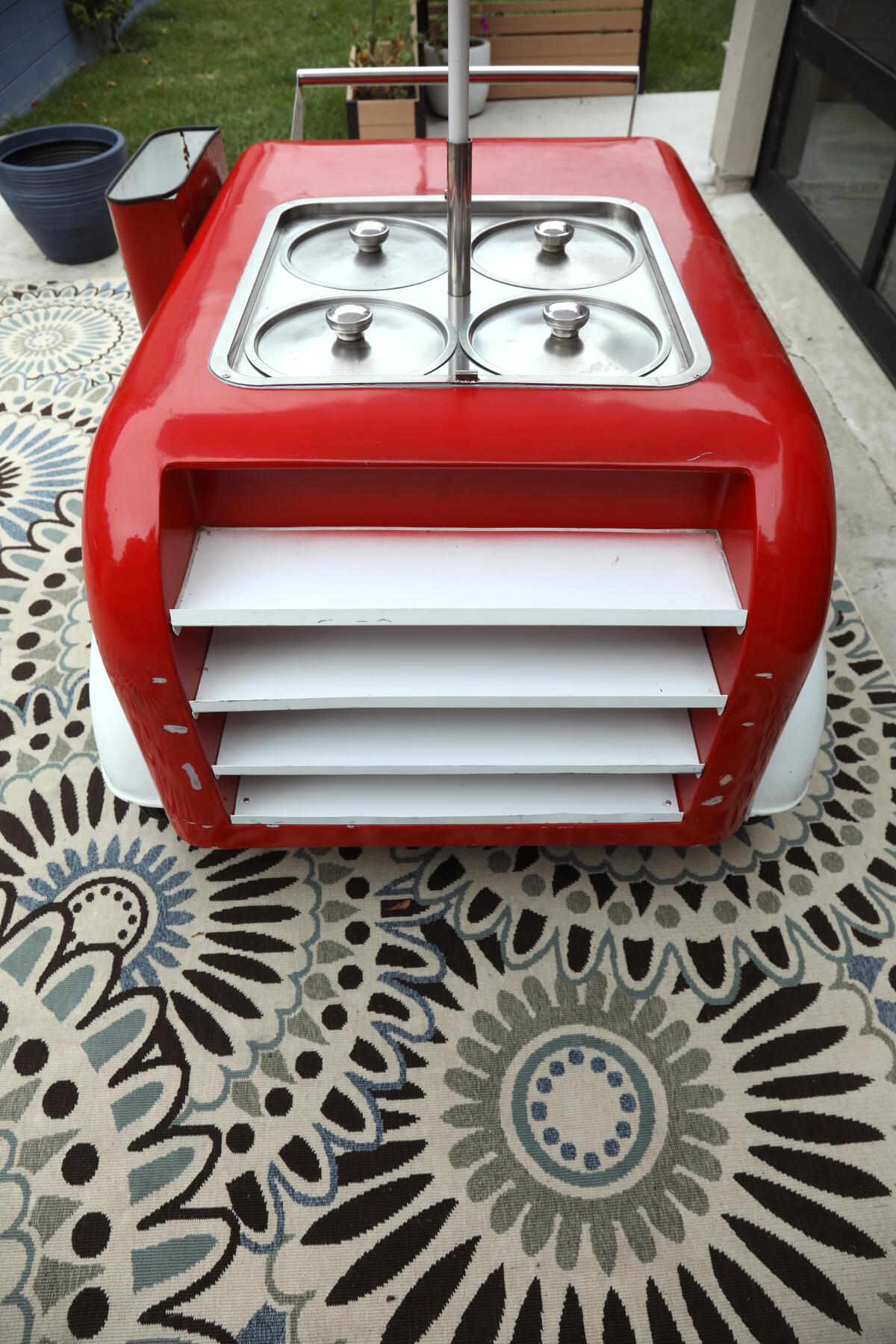
“If you need 200 carts, I will get you 200 carts,” said Geller, an emphatic organizer with a UCLA law degree.
Four years after California decriminalized sidewalk vending, the passage of SB 972 was a watershed moment for the mobile food economy.
It established a new category of sidewalk vendor: the “compact mobile food operation.” Items such as a pushcart, pedal-driven cart, stand or other “nonmotorized conveyance” fall under this classification. And a simplified regulatory framework offered an easier path for vendors using carts to get them permitted.
Consider how the new rules have affected just one category, hot-hold carts: Before the changes, they could be used to sell only tamales and steamed hot dogs. Now vendors can sell any prepackaged food that can be safely kept warm and is approved by the Department of Public Health. Geller said breakfast burritos, pulled pork sandwiches and potato tacos work well.
Economic, lightweight vending equipment that meets health codes is practically impossible to find. Revolution Carts is hoping to change that.
The passage of a handful of local laws this year also will make it easier to vend on L.A-area streets, in part by softening penalties for noncompliance with Department of Public Health regulations.
Yet, as of today, merchants have extremely limited options for purchasing carts that are code-compliant. In the hot-hold category, there’s just the Tamalero. As for grill carts, the Department of Public Health said only one company has gotten approval for a model one, All Valley Food Truck & Cart Manufacturing.
Geller said Revolution has sold 84 Tamalero carts. The bulk of those sales were to Taco Bell, which bought 50 carts and has given away many to local vendors.
Beverly Estrada, who has owned a Tamalero since 2022, said that getting a permitted cart completely changed her business, which she had run from the trunk of her car starting in 2020. Once, she said, “the health department ... they just came and took my food, told me I couldn’t be there and gave me a citation. It is an overwhelming feeling of failure.”
Fernando Ochoa Jauregui and his company, 8A Food Trucks, have been accused in lawsuits of not delivering food trucks and trailers to clients across California and pocketing their money. He denies any wrongdoing.
Now, however, Estrada sells tamales at a Home Depot parking lot in Downey as part of a pilot program that another of Geller’s companies, booking service Best Food Trucks, arranged with the big-box chain. He said that the program would’ve been a nonstarter without permitted carts, and that its success shows the immense need for ones that can easily be approved by the county as soon as possible.
For Patrick Lennon, another Revolution co-founder, it has been “gut-wrenching” to watch what he called a “fumbling” public process slowly unfold.
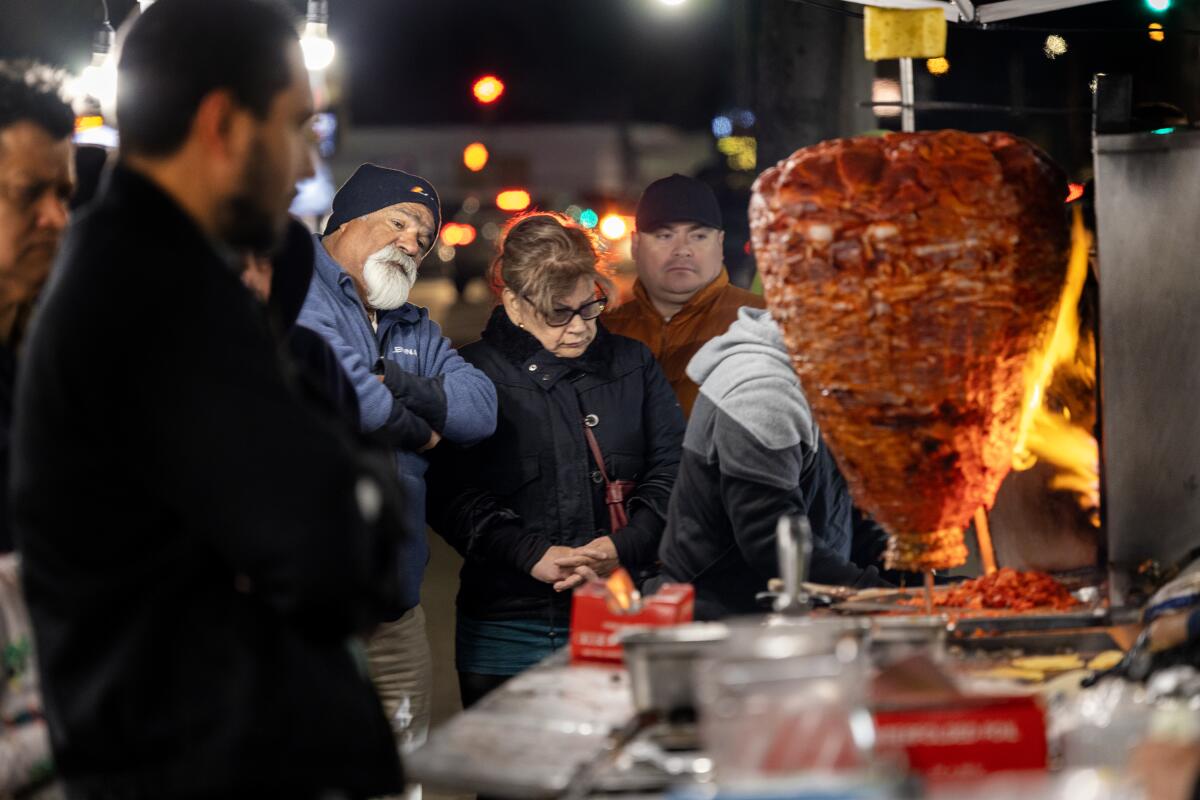
“We have success stories of vendors who are making six figures a year,” he said. “It’s more than handing them a piece of equipment — it is handing them a handbook to a new world.”
Chelina Odbert, director of Kounkuey Design, said that plans for the auxiliary grill cart designed by her company have not yet been submitted to the Department of Public Health for approval. She declined to say when that is expected to occur.
Still, LoBianco said her department would meet the Dec. 31 deadline.
Times staff writer Rebecca Ellis contributed to this report.
More to Read
Sign up for Essential California
The most important California stories and recommendations in your inbox every morning.
You may occasionally receive promotional content from the Los Angeles Times.

